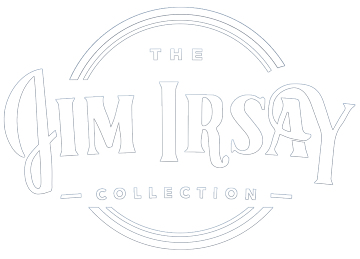George Harrison's 1964 Gibson SG Standard
Harrison purchased this guitar in 1966. He used this guitar extensively from 1966 to 1968, where it appeared on The Beatles seventh studio album Revolver (1966). It was also used in the recording of and video for the single “Paperback Writer” and its B-side “Rain.”
Revolver saw a new direction for The Beatles, where they fully embraced their departure from the sounds of Beatlemania that had taken the world by storm in the early 1960s. Their more refined and psychedelic tone carried over from their previous album, Rubber Soul, but now featured new instruments and studio methodologies. John Lennon began using an Epiphone Casino. Paul McCartney did continue to use his Hofner violin bass, but also introduced a Rickenbacker 4001S. And Harrison ditched his bulky Gretsch Tennessean for this SG.
Its most notable appearance came in the promotional video for “Paperback Writer.” In the video, the Fab Four are seen in a statue garden at the Chiswick House in London, where they pantomimed along to the song..
In live performances, Harrison played this guitar during The Beatles’ last scheduled live concert in the UK – the 1966 New Musical Express (or NME) Poll Winners Concert on May 1st of that year. This concert featured performances by a veritable who’s-who of the music industry. The Beatles headlined and were supported by the Rolling Stones, The Who, Dusty Springfield, the Yardbirds, Roy Orbison, the Spencer Davis Group, Herman’s Hermits, and the Small Faces among others.
Back in the studio, Harrison and Lennon were both known to have used this guitar. Beyond its use on Revolver and its related sessions, video footage in The Beatles “Anthology” series shows Lennon playing this guitar in studio around 1968 during the recording sessions for The White Album. The guitar was later used on the song “Hey Bulldog,” which appeared in The Beatles’ 1969 soundtrack to Yellow Submarine. Harrison used this guitar for the distorted intro section, and purportedly Lennon played it for the lead guitar solo (although there is some disagreement as to whether Harrison or Lennon played the solo).
The guitar found a second life when Harrison gifted it to Pete Ham, the guitarist and lead vocalist for Badfinger. Badfinger were the first non-Beatle related group to be signed to their Apple Corps Publishing company; they signed while still calling themselves The Iveys and changed their name to Badfinger in 1969.
Badfinger saw initial success, bolstered by their relationship to The Beatles. This included their own top charting songs, studio work on Harrison’s solo album All Things Must Pass, and serving as the backing band at his Concert for Bangladesh. In 1971, Ham and Badfinger recorded the album Straight Up. Harrison served as a producer on the album, but it’s most popular song “Baby Blue” was produced by Todd Rundgren and written by Ham. It was recorded using this guitar.
George Harrison (1943-2001) was an English guitarist, singer, and songwriter who rose to international fame as a member of The Beatles. Harrison met future Beatle Paul McCartney while riding the school bus at age 14. McCartney introduced him to John Lennon, who were playing together in a band called the Quarrymen, of which Harrison later became a member.
The Quarrymen changed their name to The Beatles and brought in Ringo Starr as their drummer. The Beatles released their first album Please, Please Please (1963) and the cultural impact of their music was immediate. Harrison and The Beatles ushered in a new wave of popular music, with "Beatlemania" first sweeping through the United Kingdom before arriving in the United States in 1964 when the Beatles appeared on The Ed Sullivan Show. During the rest of the 1960s, The Beatles dominated popular music and Harrison, McCartney, Lennon, and Starr became cultural icons.
Although Harrison had released two solo albums while still a member of The Beatles, his third solo album, All Things Must Pass (1970), was his first release after the band's breakup. It was an influential album for the sound of rock music in the 1970s and is considered one of the best solo releases of the former Beatles. Harrison went on to release 12 solo albums, mostly during the 1970s and 1980s. Harrison also was a frequent collaborator with other musicians, including Eric Clapton, Jeff Lynne, Bob Dylan, and his former Beatles bandmates. Through his record label Dark Horse Records, Harrison produced albums for musicians such as Ravi Shankar, Splinter, and the Stairsteps.
While a member of The Beatles, Harrison's guitar playing and songwriting was often overshadowed by Lennon and McCartney. As time has passed, his reputation for innovative guitar work and complex songwriting has been heralded. Harrison grew interested in Indian music, specifically the sitar, in the 1960s, and is often credited with popularizing "world music" in Western culture.
Harrison died on November 29, 2001, after a battle with cancer.


























